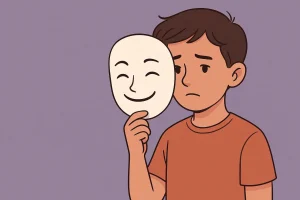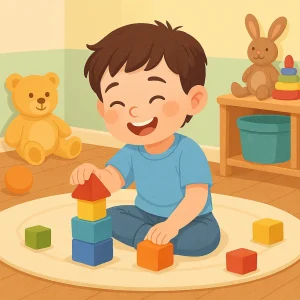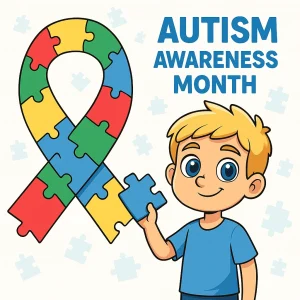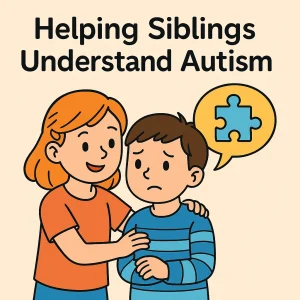What is Autism Spectrum Disorder (ASD)
By Wellness Hub
Last Updated: July 12, 2024
What is Autism Spectrum Disorder?
Autism Spectrum Disorder (ASD) is like a vast landscape filled with diverse terrains. Each person with ASD navigates this landscape with a unique set of tools, experiencing the world in ways that are distinctively different from others. Understanding ASD is key to appreciating the challenges and gifts it brings to those who live with it.
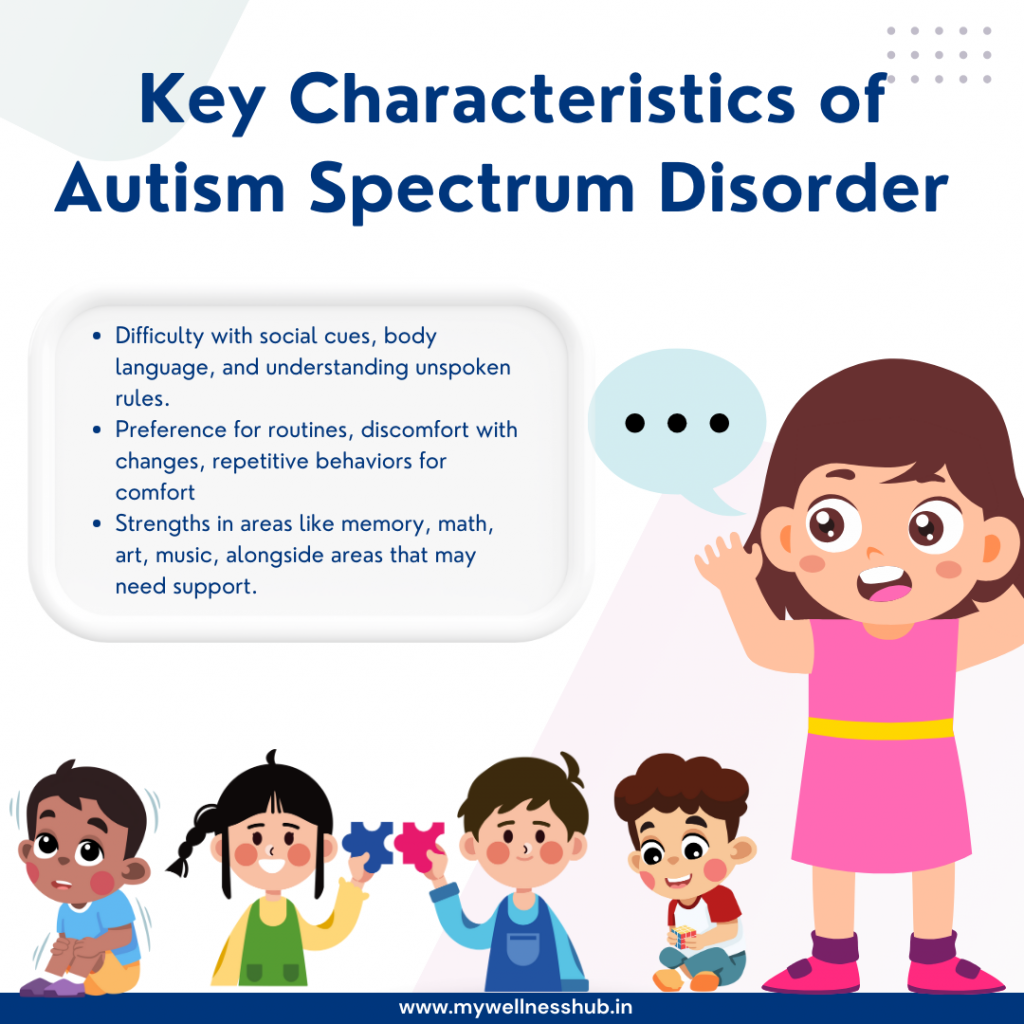
Autism Spectrum Disorder is a developmental condition that impacts how a person communicates, interacts socially, and perceives the world around them. The term “spectrum” reflects the wide variety of experiences and abilities people with ASD may have. Some might face significant challenges in daily functioning, while others might have exceptional skills in specific areas.
- Social Interaction and Communication: Imagine going to a foreign country where you don’t speak the language fluently. For people with ASD, everyday social interactions can feel just as challenging. They might struggle to interpret body language, facial expressions, or the tone of voice, making social situations puzzling.
- Repetitive Behaviors and Routines: People with ASD often find comfort in routine, like having a favorite path to walk every day. Deviations from these routines can be stressful. Repetitive behaviors such as rocking or hand-flapping may also be common, serving as a way to self-soothe or express feelings.
- Diverse Abilities: Just as different flowers thrive in different environments, individuals with ASD may excel in particular areas. These can include remarkable memory skills, math abilities, or artistic talents. At the same time, they may need support in other areas of life.

Causes of Autism Spectrum Disorder
The roots of ASD are like the roots of a tree—complex and buried deep within the ground. While we don’t fully understand all the causes, we know that genetics play a significant role. Environmental factors, such as the age of the parents and conditions during pregnancy, also contribute. It’s important to note that there is no scientific evidence linking vaccines to autism.
1. Diagnosing ASD
Diagnosing ASD is more like piecing together a puzzle than taking a simple test. There are no blood tests or medical scans that can diagnose ASD. Instead, specialists look at the person’s behaviors and development over time. They consider how the individual interacts with others, communicates, and behaves in different situations.
2. Treatments for ASD
Navigating ASD is not about “curing” the condition but enhancing the quality of life for those affected. Treatments are tailored to individual needs and can include:
- Behavioral Interventions: Teaching skills through structured guidelines and reinforcing positive behaviors.
- Speech Therapy: Helping to improve communication skills, both verbal and non-verbal.
- Occupational Therapy: Aiding in daily living skills and sensory integration.
- Educational Supports: Customizing learning approaches to leverage strengths and support areas of challenge.
Living with Autism Spectrum Disorder
Understanding ASD is like learning to speak a new language—it opens up a world of deeper communication and connection. With support and acceptance, individuals with ASD can lead fulfilling lives, contribute uniquely to society, and share their perspective on the world.
Conclusion
Autism Spectrum Disorder adds a unique hue to the spectrum of human experience. By embracing and supporting this diversity, we can help individuals with ASD navigate their landscapes more effectively, ensuring they have the opportunity to thrive and shine in their unique ways.
Reviewed by Rajini Darugupally, M.Sc., Speech-Language Pathologist with over 9 years of experience.
Wiki BASICS is more than just an information hub—it’s your gateway to unlocking a comprehensive understanding of child development. Through our clear, concise, and engaging content, we aim to illuminate the diverse aspects of developmental milestones and challenges that are crucial for parents, educators, and healthcare professionals. Whether you’re seeking insights into your child’s next steps or solutions for developmental hurdles, Wiki BASICS is here to guide you with reliable and accessible information.
Book your Free Consultation Today
Parent/Caregiver Info:
Client’s Details:
* Error Message
